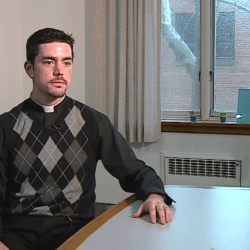The largest Roman Catholic geographical district in Brazil, located deep in the Amazon along the Xingu River, has more than 800 Catholic congregations but only 27 priests.
Bishop Erwin Krautler, prelate of Xingu (pronounced Shin-goo), has argued that the situation calls for drastic measures. In April, he took his case to the Vatican, where he met with Pope Francis. Recently, Krautler and Cardinal Claudio Hummes, a friend of Pope Francis, presented the idea of ordaining married community elders to Brazil’s National Conference of Bishops, which is now in the process of forming a commission to delve deeper into the matter.
Krautler said he counted himself among a group of bishops, mostly in the developing world, who see the ordination of such elders as a potential solution for the countless rural congregations that cannot receive the sacraments, including Communion, marriage and baptism.
“The situation of Xingu is not an exceptional situation,” Krautler said. “All of the Amazon has the same problem of very few fathers for a large number of communities.”
Krautler said Pope Francis has encouraged open dialogue on the issue and urged bishops at the national level to come up with “courageous” proposals to address the priest shortage.
The Brazilian bishop is not the first to propose ordaining married men. Krautler said Fritz Lobinger — retired bishop of Aliwal, in South Africa — put forward the case for ordaining married men in underserved areas.
Lobinger visited Brazil five times while he was formulating his views, which he has espoused widely.
“Lay leaders preach, conduct services, conduct funerals, pray for the sick and in some areas they are even authorized to conduct baptisms and marriages,” Lobinger said. “There can be no doubt that they would also be accepted if they were ordained to the ministerial priesthood.”
Lobinger said the ordination of elders would work in vibrant, self-reliant Catholic communities.
But some priests view a new path to ordination without formal academic training or the celibacy requirement as a threat that could undermine the traditional priesthood.











